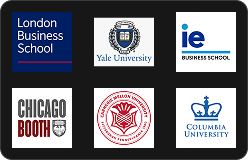
Top MEM Schools in Canada: Your Guide to the Best Programs for 2025
Top MEM Schools in Canada: Your Guide to the Best Programs for 2025Thinking about mixing your engineering background wi…
Table of Contents

The Queen’s MFin program, offered by the Smith School of Business at Queen’s University, is a great fit for working professionals who want to grow in the finance world. This part-time Master of Finance Queens program runs on weekends at the Toronto campus, placing you right in Canada’s top financial hub.
With the Smith MFin, you don’t have to leave your job to study. You learn from top faculty, work on real finance problems, and meet people from the industry. The program is designed for MFin career development, helping you move into roles like investment banking, asset management, or corporate finance.
Studying in downtown Toronto gives Queens MFin students access to major banks and finance firms, making it easier to network and find great job opportunities. It’s a flexible and focused way to build your finance career.
Here are some key details:
| Feature | Detail |
| Duration | 12 months |
| Format | Part-time (weekend classes) |
| Location | Toronto, Ontario |
| School | Smith School of Business |
| Degree | Master of Finance (MFin) |
The Queen’s University MFin program teaches important finance topics like financial modeling, portfolio management, and corporate finance. Students also build strong skills in leadership and decision-making, which are useful in any finance job.
There are many reasons why students pick the Queen’s MFin program. It gives you a strong education and helps you move ahead in your finance career. Here are four big reasons why this program stands out.
The Smith School of Business is known all over Canada and beyond. It has top teachers, a strong finance program, and a history of success. Employers trust a degree from Smith. When you study here, you learn from experts who also work in the real world.
Classes happen at the Toronto campus, close to Canada’s biggest banks and investment firms. You’ll be near Bay Street, where many finance companies are based. This helps you attend events, meet people in the field, and find job openings faster.
The Queen’s MFin is a 12-month program made for working professionals. You go to class on weekends, so you can keep your job while you study. This setup is great for people who don’t want to take a break from work.
The program has a strong alumni network. Many past students now work at top finance firms. You also get to connect with employers through career events and workshops. This makes it easier to get interviews and grow your network in finance.

The Queen’s MFin program is more than just classroom learning. It gives you strong knowledge in finance and the tools to use that knowledge in real life. Here’s what makes the program special.
In this program, you learn the most important parts of finance. Some of the main topics include:
The program focuses on real-world skills. You learn how to apply finance ideas to real problems. That means you don’t just study — you also practice. The curriculum is also CFA-aligned, so it can help if you plan to take the CFA exams.
The Queen’s MFin is a 12-month, full-time program. It’s short but intense, helping you move forward in your career quickly. Some classes are in the evenings or on weekends, which helps if you're working while studying.
What really makes this program stand out are the extra tools and experiences:
These features help you feel ready for real finance jobs after graduation.
To get into the Queen's Master of Finance, you need a good GPA, a bachelor's degree (business or math helps), and possibly GMAT or GRE scores. If English isn’t your first language, you’ll also need IELTS or TOEFL scores.
The Queen’s Master of Finance admission requirements include your resume, transcripts, a short essay, and recommendation letters. The Finance Queens team looks for motivated students who are ready to grow their careers in finance.
To apply, you must:
It helps if you also have:
Work experience is not always required, but it can make your application stronger.
You need to send the following:
Make sure your documents are complete and correct before you apply.
The Queen’s University MFin program has more than one intake. Each intake has its own deadline. Check the table below:
Intake Month | Application Deadline |
| January | October 1 (previous year) |
| May | February 1 |
| September | June 1 |
It’s best to apply early. Spaces fill up fast, and applying early shows you’re serious.
Before you apply to the Queen’s MFin program, it’s important to understand the total cost. This includes tuition, living expenses, and other possible fees.
The Smith School of Business sets different tuition fees for domestic and international students.
Student Type | Tuition Fee (CAD) |
| Domestic Students | $38,000 – $42,000 |
| International Students | $45,000 – $50,000 |
These fees cover classes, course materials, and some student services. Fees may change slightly each year, so check the official website for updates.
Living in Toronto can be costly. Below is a rough monthly breakdown of living expenses:
Expense Type | Monthly Cost (CAD) |
| Rent (shared housing) | $900 – $1,200 |
| Utilities & Internet | $100 – $150 |
| Food & Groceries | $300 – $500 |
| Transportation | $150 – $200 |
| Miscellaneous | $100 – $200 |
| Estimated Total | $1,550 – $2,250 |
For one year, students should budget around $18,000 to $27,000 for living costs.
The Queen’s University MFin program offers some scholarships and financial help.
Make sure to apply for scholarships early, and contact the admissions team if you have questions about funding.

Graduates of the Queen’s MFin program often land great jobs in finance. The program is well-known in the industry and has strong connections with top companies.
Many top companies look to hire graduates from the Queen’s University MFin program. These include:
Because the program is based in Toronto, students get to meet people from these companies at events and interviews.
Most students see a jump in salary after finishing the program. Here are the numbers:
Job Role | Average Salary (CAD) | Bonus (if any) |
| Financial Analyst | $70,000 – $85,000 | $5,000 – $10,000 |
| Investment Banking Analyst | $85,000 – $100,000 | $10,000 – $25,000 |
| Risk or Portfolio Manager | $90,000 – $110,000 | $10,000+ |
Salaries depend on your past experience and the job you get, but most grads see strong returns on their investment.
The Smith School of Business gives strong career support to all MFin students. These services include:
These services help students find the right job and prepare for long-term success.
The Queen’s MFin program brings together students from many backgrounds. This mix of experience, skills, and cultures makes learning better for everyone. Here’s a look at the typical class profile.
Most students in the program already have some work experience. This helps them understand the lessons better and add real-life ideas to class talks.
Detail | Average |
| Age | 27–30 years old |
| Work Experience | 3–5 years |
Many students come from finance, accounting, or business jobs.
The program works hard to create a fair and equal class. It welcomes people of all genders and supports women in finance.
Group | Percentage |
| Female students | About 40% |
| Male students | About 60% |
The school wants to raise the number of women and underrepresented groups in the program every year.
The Smith School of Business is open to students from all over the world. The Queen’s MFin class usually includes people from many different countries.
Student Type | Percentage |
| International Students | 30–40% |
| Canadian Students | 60–70% |
This global group helps students learn about how finance works in different countries.
Most students score well on their entrance tests. While there’s no official cut-off, strong scores help your application stand out.
Test | Average Score |
| GMAT | 650–700 |
| GRE | 310–325 |
Good grades, a strong resume, and a clear reason for joining the program also matter a lot.
The Queen’s MFin program is ranked among the best in Canada and is well-known around the world. These rankings and accreditations show the program’s strong quality and global trust.
Many top education rankings place Queen’s University and the Smith School of Business high for finance and business.
Here are some recent rankings:
Ranking Body | Year | Ranking (Canada) | Global Rank (if listed) |
| QS Business Master’s in Finance | 2024 | Top 3 | Top 50 worldwide |
| Financial Times (MFin Ranking)* | 2024 | Listed among top Canadian MFins | Not globally ranked individually |
| Poets&Quants | 2024 | Top 5 in Canada | N/A |
Not all Canadian MFin programs are listed in the Financial Times rankings each year, as FT often selects full-time global MFin programs only.
These rankings are based on things like salary after graduation, student satisfaction, and career growth.
The Smith School of Business, which offers the Queen’s MFin program, holds top accreditations that show its high quality.
These accreditations show that the Smith School of Business follows high standards in teaching, faculty quality, and student outcomes.
The Queen’s MFin program is not just about studying. It’s also about growing as a person, making friends, and building your career. From campus activities to life in Toronto, students enjoy a full and exciting experience.
At the Smith School of Business, students are part of a close and supportive group. Even though the program is based in downtown Toronto, you still get to enjoy school life.
Here’s what you can expect:
These activities help students learn teamwork, speak in public, and become better leaders.
Toronto is Canada’s biggest city and one of the top financial hubs in the world. This means you’re studying where all the action happens.
While living in Toronto, you’ll enjoy:
Living and learning in Toronto helps you grow in both your career and your life.

If you're thinking about doing a Master of Finance in Canada, it helps to compare schools. The Queen’s MFin program is strong, but there are other top choices too. Let’s see how it stacks up against programs at Schulich (York University), Sauder (UBC), McGill University, and University of Waterloo.
Program | Duration | Location | Tuition (CAD) | Work Experience Needed | Known For |
| Queen’s MFin | 12 months | Toronto | $38K–$50K | 2+ years preferred | Flexible schedule, career focus |
| Schulich MFin | 16–20 months | Toronto | $52K–$58K | No (but preferred) | Specializations in Risk, CFA support |
| Sauder MFin (UBC) | 16 months | Vancouver | $55K–$60K | 2 years preferred | Strong global ties, west coast jobs |
| McGill MFin | 12–16 months | Montreal | $49K–$55K | No | Research-heavy, global student base |
| Waterloo MFin | 16–20 months | Waterloo | $40K–$48K | 2 years required | Tech-finance blend, data-driven |
Each program has strengths. Choose the one that best fits your goals, timeline, and career path.
